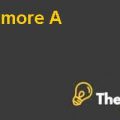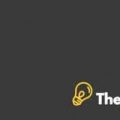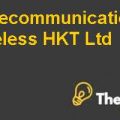British Satellite Broadcasting versus Sky Television Case Study Analysis
Why did this competitive battle turn out to be so costly for both parties?
This battle turned out to be competitive for both the parties, because of the aggressive investments made by both the companies, to market their services and products as well as to strengthen their stake within the market. Another major factor due to which this battle did turn out to be costly for both the parties, was that, BSB and Sky, both of them had entered into a ferocious bidding war for the rights of the Hollywood movies.
For instance, by the end of the year 1988; BSB committed around 400 million pounds in tying up MGM, Columbia, Universal and the Paramount studios with the total upfront costs of 85 million pounds. In the same year, Sky committed around 270 million pounds in tying up Disney, Touchstone, Warner, Orion and other independent studios, with the total upfront costs of 60 million pounds. These commitments and expenditures were the budget breakers that led to this costly battle between the two parties.
4) If there is a merger deal, what share of a possible merger pie would you hold out for, as BSB?
The possible strategies that could be implemented by the management of BSB,after the launch of Sky TV; are as follows:
- BSB should have forwarded the launch date to a longer timeframe, however, they had to move quickly as Sky had already entered the market.
- BSB should have emphasized on all the means to cut costs, for instance: it should not have moved into the Marco Polo House. The management of BSB had to incur the high cost operations and the high cost culture of the company.
- BSB should have gone ahead with more aggressive marketing being focused on the relative advantages of D-MAC. BSB should have chosen to avoid going against formidable alternatives at this point of time, in 1990.
- The satellite dishes should have been pre-sold to the consumers. This could have served as a possible strategy, but the consumers were less likely to be locked.
- Finally, BSB could have found other partners for programming; however, this option was also limited now, as it had become much difficult to keep Amstrad in the fold.
If a Cartel had been formed by both the companies, then it would have been possible for BSB to have a 40% to 50% approximate share of the market.....................................
This is just a sample partical work. Please place the order on the website to get your own originally done case solution.









